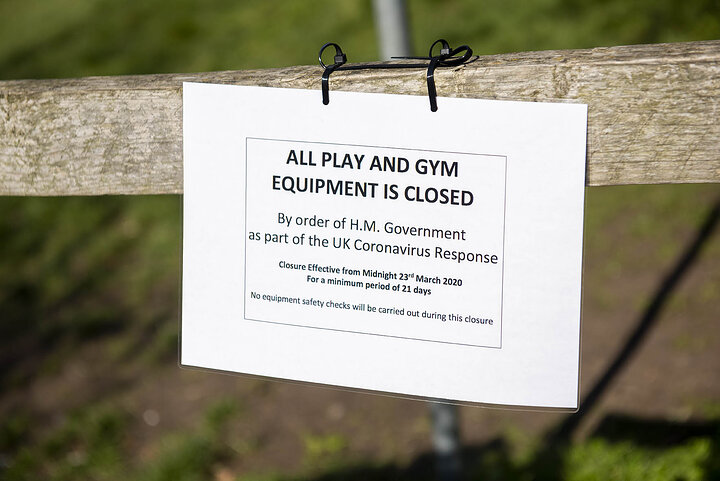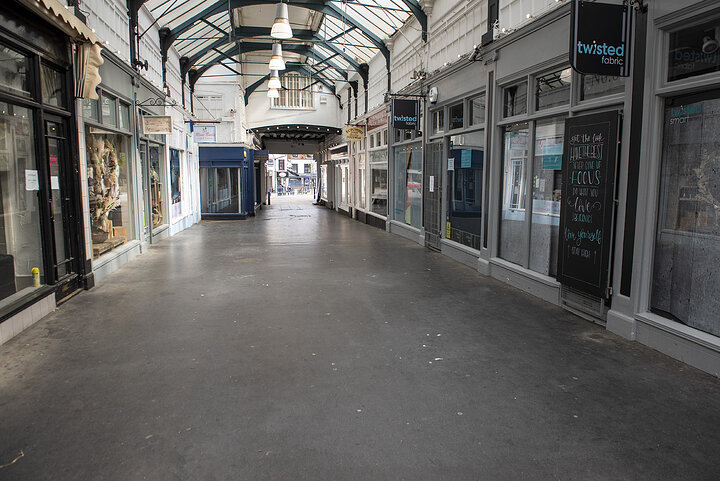 Hitchin Arcade mid afternoon Friday 17th April
Hitchin Arcade mid afternoon Friday 17th April
This shopping arcade is nearly always bustling with people. A cafe halfway down usually has tables and chairs outside with people hanging around to grab a seat. The smell of coffee, sizzling bacon and a variety of other aromas fill the air. Music and laughter, chatter and children shrieking echo around the glass arcade. racks of bargains outside each shop are browsed through by people on their way too and from the town, the car park or the supermarket. But today on a springlike Friday afternoon, usually a really busy time, the arcade is deserted, no shops are open, they have been closed for nearly four weeks. It is eery.
I am only here as I am a volunteer looking out for vulnerable neighbours who are either elderly, in quarantine or have had symptoms of the virus. Under government guidelines I am permitted to leave my home for essential shopping or medicines. It is the need for medicine requested by an ambulance service paramedic attending a call in my village that has enabled me to travel to Hitchin, five miles from my home. I thought I would grab some photographs whilst here.
Only shops selling essential items are allowed to open although the interpretation of 'essential' differs wildly. Some shops and services are surviving by ramping up online selling. Twisted Fabric, front right in the photo above, is a small independent clothing retailer. It is the only local clothing shop I use regularly. Of course other than for feeling good there is little point in buying so many clothes currently, other than daily exercise (one outing and day, for around an hour, near your home) essential shopping trips are the only times you are allowed out of your home. Unless you are a key worker which is generally associated with NHS and care, some construction, some essential trades and transport, lorry and delivery van drivers and of course the bin men. Everyone else is either working from home, furloughed so just stuck at home, or now out of work. Oh and I forgot although schools are closed some are partially open for children of key workers, so some teachers are working. For the majority then 'going out' clothes, the ones we renew most often are not really required. Nowadays we socialise using a video conferencing app called Zoom. So there are virtual pub nights out, family get togethers, quizzes, so many quizzes, jamming sessions, club meetings, the list goes on. The common factor is nobody seems fussed about dressing up for them. Lounge pants, dressing gowns, shorts and Sloppy Joes are 'de rigueur'. Hairdressers are not allowed to be open so people are either just letting their hair grow and looking rather unkempt or family members and flatmates are turning their hand to hairdressing (cutting and colouring) which is spawning a multitude of Keith Flint lookalikes across every generation. Any way back to Twisted Fabric, I responded to some email marketing and ordered a couple of pairs of jogging bottoms, something that doesn't normally feature high in my wardrobe. The speed and politeness of the communications impressed me. The fact that the owner, Rick, personally delivered the order the following day, religiously complying with social distancing and hygiene measures. How entrepreneurs and businesses respond to the challenges of this pandemic will impact their survival both during and after. Rick has responded not by complaining but by getting on with meeting his customers needs any way he can.
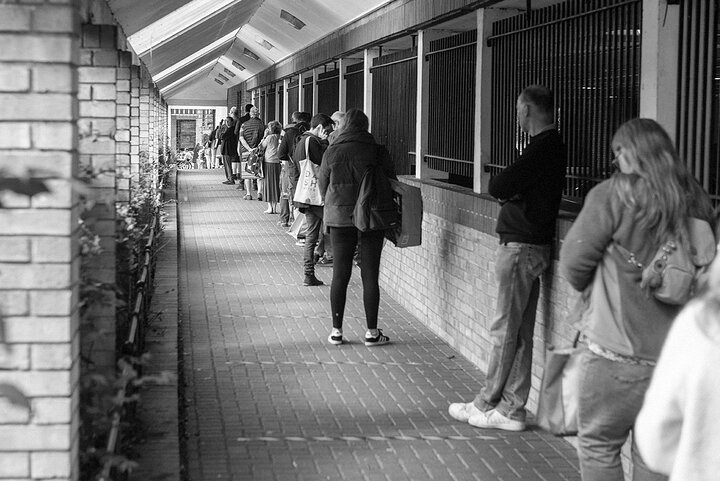 The Waitrose queue
The Waitrose queue
Five or six weeks ago there was a stampede to supermarkets as a panic buying pandemic preceded the virus pandemic. I never experienced it as my opinion then as now was that it was whipped up by the news media ably abetted by keyboard warriors on social media. I can only think that is was a stressful experience. We never panic bought and have never run out of any essentials. Supermarkets responded to the panic by initially limiting, I suppose rationing, the quantity of some items your were allowed to purchase. Then with lockdown the shopping experience changed radically and we are now used to it. On many levels supermarket shopping is now a more pleasant and efficient experience than it was pre Covid-19. The only downside is that purposeless and aimless browsing around the aisles is now a thing of the past, but is that a bad thing?
Supermarkets now only let in a fixed amount of people, I guess in an averaged sized store around thirty people. Once the first batch are in entry is on a one in one out basis. Trolley's (large or small or baskets) are allocated on entry (no more fighting for one in the car park) each trolley has been sanitised after use. There are always queues to get in, customers stand two metres apart, the distance marked with tape on the ground. Personally I try to make it three metres minimum. Although the queues look endless at times, the average wait is 25 - 45 minutes. That would have sounded like a lot pre lockdown but the pace of life now is slower. People appear more considerate and content than I've ever known (will this last?) and so after around half an hour of being amused by the facial expressions of new arrivals joining the queue you finally get to the point where the attendant says with a wave of the hand "you're next big trolley or small?". Then inside the store it is civilised, everyone gives each other space, there are no queues for the fresh fish counter or the deli, you don't have to manoeuvre through a multitude of abandoned trolleys full of shopping whilst the owners of the contents feed themselves in the supermarket cafe, the cafe is now closed down. Lastly there is no, or only a small, queue at the checkouts. So surprisingly that early wait outside is more than compensated for by time saved in a stress free in store experience.
All shops that are open have adopted some form of limiting numbers in the shop at any one time and maintaining movement in shop and queuing outside always meeting social distancing requirements. The shops must also take all steps possible to prevent their staff catching the virus. many small shops have installed glass screens over their counters. Paying cash is almost unheard of and the contactless limit has been raised from £30 to £45 per transaction without limit on the number of transactions. Local shops in villages, corner shops on estates have are seeing much more trade as people heed government advice to stay at home and to avoid public transport.
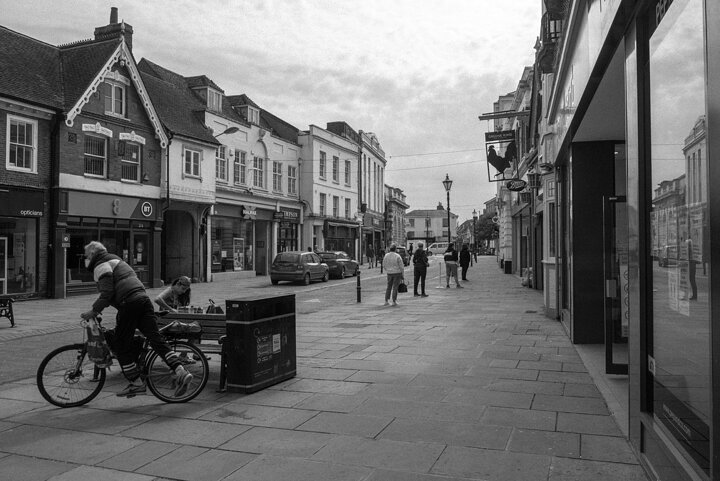 Boots Hitchin High Street Friday 17th April 2020 mid afternoon
Boots Hitchin High Street Friday 17th April 2020 mid afternoon
Other than the chemist every shop in the High Street is closed. People queue outside Boots mainly for prescriptions. Chemists make prescription deliveries to homes each morning so those queueing usually have an urgent need. The queues for prescriptions are less good humoured than other shops understandably as the customers visit is no doubt stressful and they are in a hurry. In my volunteering role I have spent a lot of time in chemist queues, it really is not the nicest place to be but the pharmacists and assistants really are heroes.
We don't know when our towns will be open for business again. Whenever it is I think 'consumerism' will have changed along with I believe some reversal of the rampant globalisation that has been increasing for decades. Our sense of value will be reset. Paying more for local produce and more locally manufactured goods may become more prevalent following our recent experiences. More of that another day.
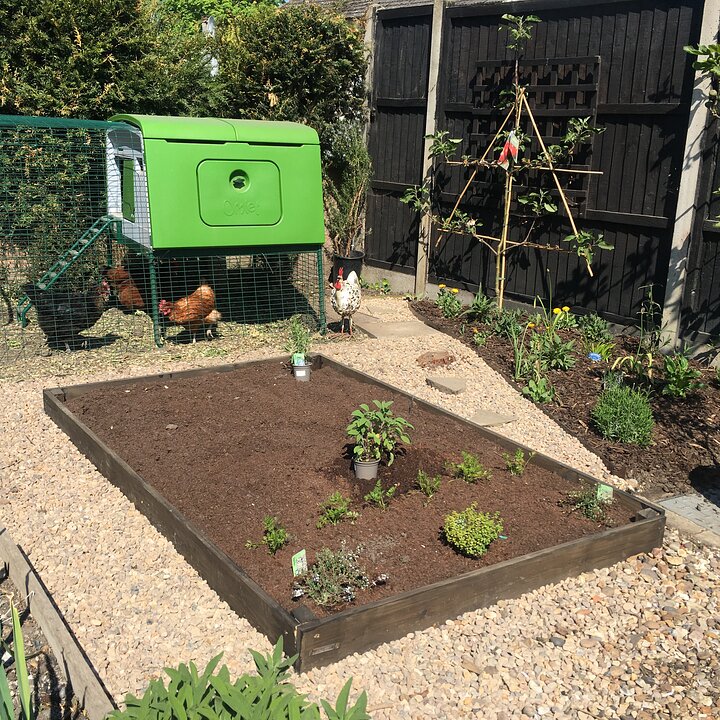

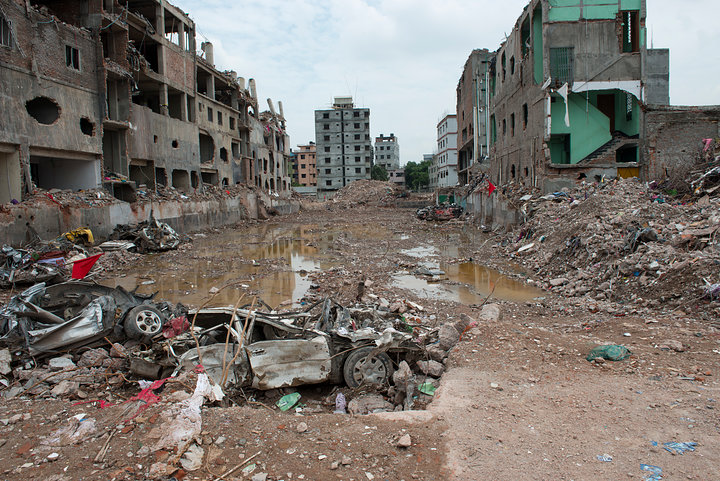 Rana Plaza Building Collapse 24th April 2013
Rana Plaza Building Collapse 24th April 2013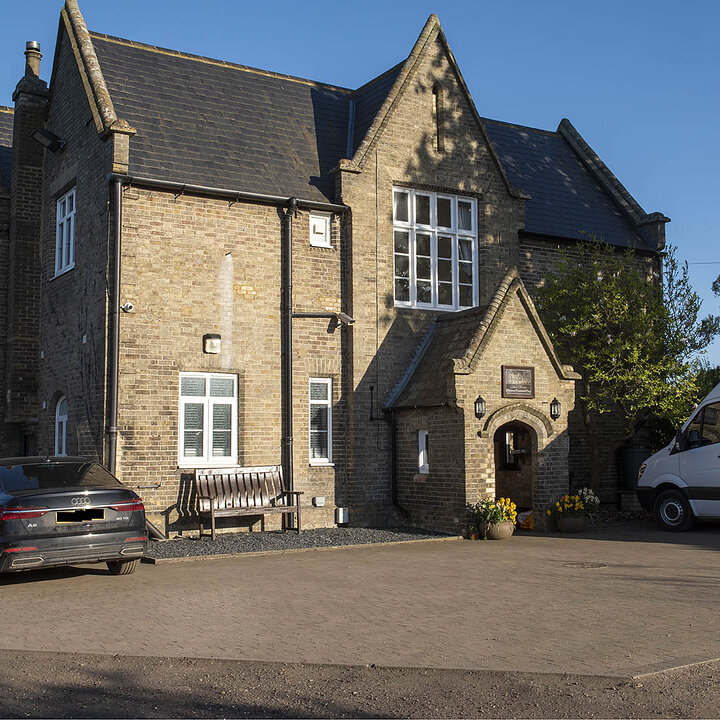 Chase House
Chase House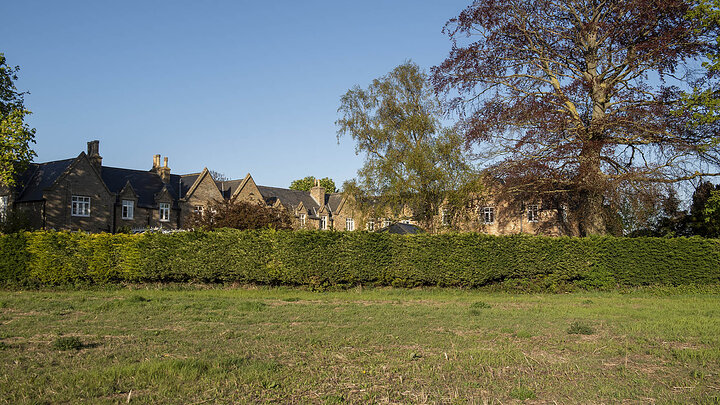 Chase House Care Home
Chase House Care Home Hitchin Arcade mid afternoon Friday 17th April
Hitchin Arcade mid afternoon Friday 17th April The Waitrose queue
The Waitrose queue Boots Hitchin High Street Friday 17th April 2020 mid afternoon
Boots Hitchin High Street Friday 17th April 2020 mid afternoon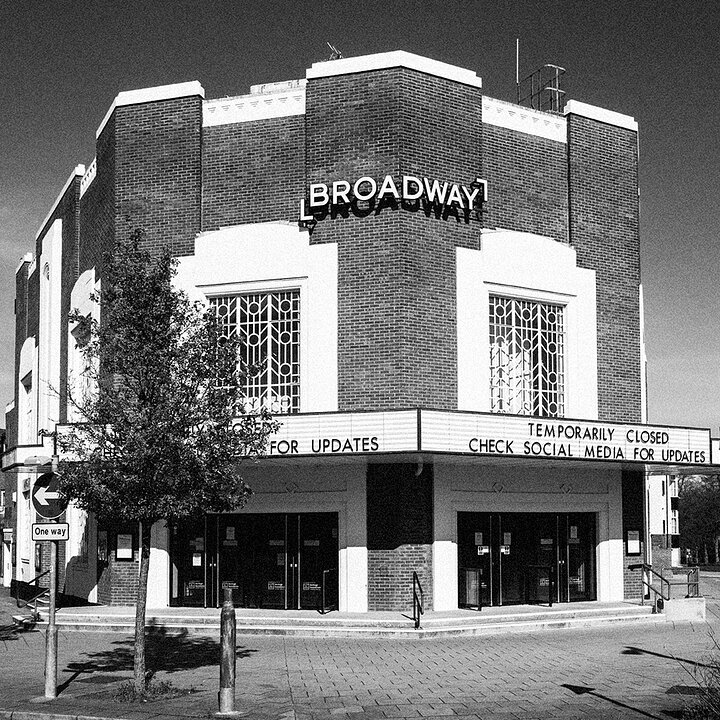 Broadway Cinema Letchworth
Broadway Cinema Letchworth